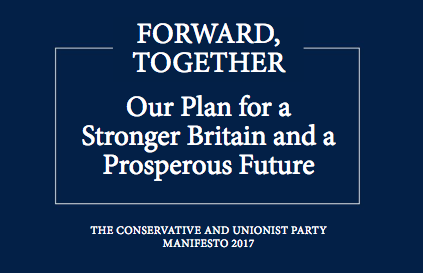This column is written Rachel Holdsworth, whose fine, witty writing on London politics, housing issues and more used to regularly grace Londonist. She’s now a freelance writer and editor.
So much for devolution. The Conservative manifesto promises to meddle in how we elect our mayor and Assembly. This can only be bad for London.
The Tories want to scrap the electoral commission supplementary vote system for mayoral elections and replace it with First Past The Post (FPTP). That’s probably not going to change the results much, if we’re honest; many second preference votes in London are “wasted” anyway (that is, people use them to vote for candidates from the smaller parties, who are never going to make the second round run-off stage where they would count). At worst it’s a cynical attempt to consolidate Conservative votes while splitting the progressives, but that doesn’t really work in general elections so it’s unlikely to apply to the mayor either.
Where this proposal is really egregious is when it comes to the London Assembly. Mayorwatch’s sources confirm the Tories’ plan to scrap the “top-up” London-wide Assembly Members, voted for by party lists with seats assigned proportionally. It’s how the Greens, Liberal Democrats, UKIP and BNP have got their seats in the present and past.
Leaving aside the democratic outrage of the fact that every single London borough voted in favour of this system in a 1998 referendum – apparently the “will of the people” is only important some of the time – changing the way the Assembly is elected will fundamentally affect its make-up, and therefore fundamentally affect what happens in London.
Now, it’s fair to say that the Assembly lacks bite. But the real power of Assembly Members is that they have the staff and funding to do research. And with a plurality of parties comes a plurality of ideas. The hopper bus fare, recently enacted by Sadiq Khan? That came from the Lib Dems. The Greens have been working hard for more support for cycling since 2000 and put the policy into the mainstream; it’s arguable that without them, Ken Livingstone would never have looked seriously at the bike hire scheme. A 2009 report on 20 mph speed limits was championed by Jenny Jones; by 2013 Boris Johnson was adopting the concept. Without the funding to further these policies, without the official position to influence the mayor, would these ideas have got the attention they deserve?
The Lib Dems are still pushing the idea of part-time travelcards to save part-time workers money, and the Greens produce excellent research on air pollution. Without this range of ideas in the future, will London be better off? Absolutely not.
Apparently the idea is to carve London up into smaller constituencies than exist at present, and each area get its own FPTP representative. That will inevitably make the Assembly dominated by Labour and Conservatives, with the Lib Dems perhaps squeaking a seat or two around Richmond and Sutton.
That would undermine the founding purpose of the Assembly, to represent all Londoners, including minorities. And it would also lead to half the Assembly Members softballing questions if “their” party has the mayoralty. (Oh, it happens.) At least in the current scenario there’s always a majority of AMs with no party skin in the game.
This proposal can only be bad for London. A thriving, dynamic city would lose its diversity of voices and ideas. Fresh thinking leads to innovation and development. With Brexit on the horizon, London will need every edge it can get. Why are the Tories trying to stifle that?
Rachel Holdsworth has also contributed this piece to On London’s 2017 general election coverage.

